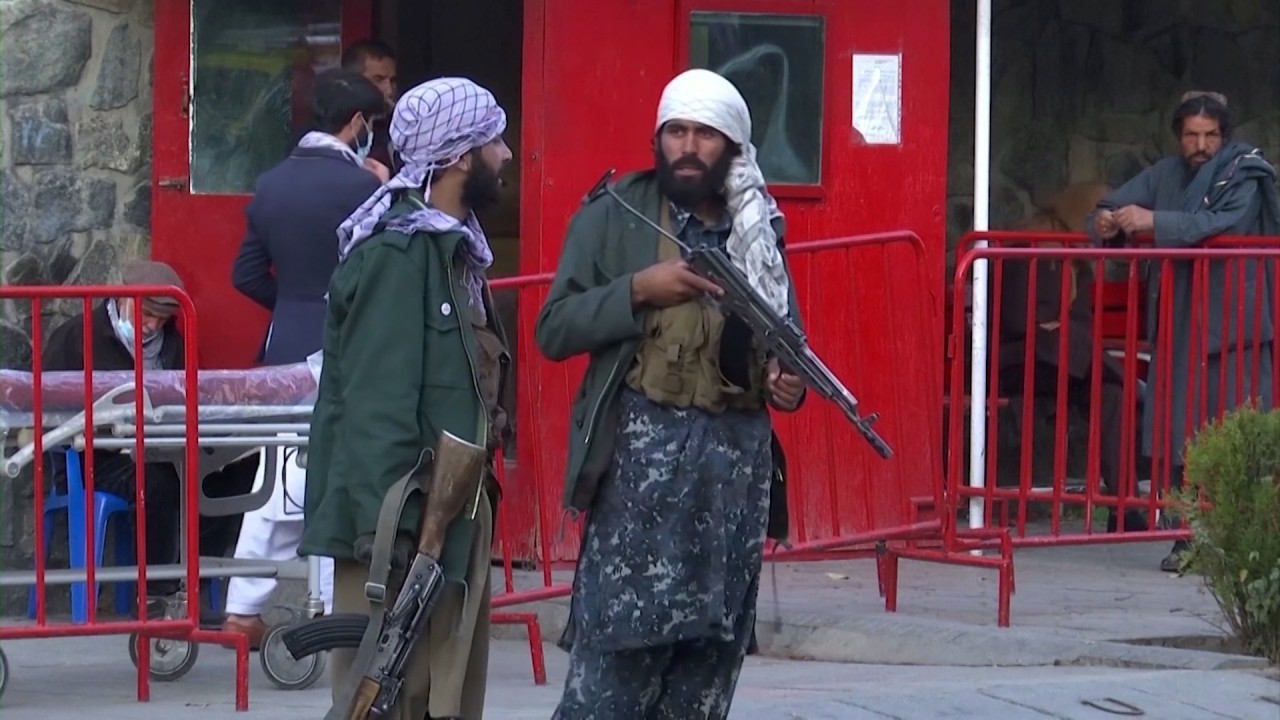
Terror groups may target Asia as global travel reopens: Singapore defence minister
- The likes of Isis and al-Qaeda have continued recruiting and radicalising members digitally amid the pandemic, said Ng Eng Hen at the Putrajaya Forum
- With the drawdown of US troops in the Middle East, the centre of gravity will shift to the Asia-Pacific region, he added
Concerns about terror groups and their continued recruitment and radicalisation activities in cyberspace, during the two years since the Covid-19 began, were among the hot topics at the Putrajaya Forum, an event held biennially in conjunction with the Defence Services Asia trade show.
In December, the UN Security Council Counter Terrorism Committee issued a report saying Covid-19 travel restrictions in the past two years had “artificially suppressed” the threat of terrorism and the reopening of travel lanes may result in “an increase in terrorist violence”.
With the removal of Covid restrictions to travel, we can expect an increase in terrorist activity
“Global terrorist groups such as Isis and al-Qaeda have proven resilient and adaptable. They have kept their recruitment and radicalisation strategies current, and are exploiting cyberspace to great effect,” Ng said in a speech at the forum on Tuesday.
“With the removal of Covid restrictions to travel, we can expect an increase in terrorist activity,” Ng added.
Why Hambali, ‘Southeast Asia’s bin Laden’, is not just an artefact of history
The Singaporean defence minister said the with the drawdown of US troops in the Middle East, the centre of gravity will shift to the Asia-Pacific region.
“People who went to the Middle East to fight for al-Qaeda or Islamic State (Isis) will now return home. When they return, they come with their network and know-how,” Ng said. “Our only real viable tool is intelligence.”
He added security agencies “have to succeed all the time” while terrorists only need to succeed “once”.
Jihadists exploited the time being spent online to “recruit them, especially young people and women”, said Taufiqurrohman, who monitors jihadists activities online.
“Jihadists will first reach out to them via Facebook and YouTube and later shift to chat groups on Telegram, WhatsApp, Tam Tam and Element,” he said.
Taufiqurrohman said the Tam Tam and Element chat apps may not be popular with the general public, but are popular among pro-Isis extremists because they believe in “its super security, untraceable by security agencies”.
The easing of Covid-19 travel restrictions could result in extremists from one country going to another to carry out suicide bombings, shootings or other terror acts.
Indonesian militants ‘infiltrating’ state institutions to create caliphate
Efforts to jointly mitigate climate change could be one of the knock-on effects of the war, he noted, with initiatives including carbon emission reductions, the development of green enterprises, cybersecurity measures, and building digital economies likely to be deprioritised as officials focus on the conflict as well as intensifying global rivalries.
“All these will be difficult to put on the global agenda, when these rivalries are sharpened,” said Ng, adding that he hoped there would be a “diplomatic solution” to the war.

Delivering the keynote speech at the forum was Malaysian Defence Minister Hishammuddin Hussein, who reiterated his government’s call for Kyiv and Moscow to immediately seek ways to de-escalate the situation.
“We will continue to support all efforts in the interest of maintaining regional and international peace and security,” Hishammuddin said.
In his remarks, the minister touched on the impact of the pandemic on defence spending. He pointed out that national governments around the world dug deep into their fiscal reserves to buy medical equipment and vaccines during the health crisis and keep their respective economies afloat.
“How do we, at the Ministry of Defence, finance new procurements? How do we ensure that our hardware and assets remain up to date?” said Hishammuddin. “It is ultimately up to us as leaders in the defence and security business to rise up to the challenge and use the pandemic as an opportunity to re-evaluate our priorities.”
Indonesia, Malaysia, Philippines praise ‘anti-kidnapping’ naval patrols
In a press conference on Wednesday, Hishammuddin said some 54 agreements worth 4.6 billion ringgit (US$1.01 billion) were signed during the four-day trade show.
The deals comprised 20 letters of acceptance worth 1.14 billion ringgit, 24 contracts worth 3.32 billion ringgit as well as seven letters of intent and 3 memorandums of understanding.
For Malaysia, negotiations were “still in place” to purchase decommissioned Boeing F/A-18 Hornet multi-role jets “to complement what we have”, the minister said.
Kuwait’s fleet of Boeing F/A-18 Hornet multi-role fighter jets could prove vital to the combat readiness of Malaysia’s air force given the possibility that international sanctions on Moscow may disrupt Russian supplies of spare parts for its fleet of 18 Sukhoi 30-MKM jets.
Asked whether Moscow had guaranteed the supply of spare parts for Malaysia’s Russian-made jets, Hishammuddin said the issue had been the subject of “ongoing discussions from day one”.
“I think the Ukraine situation will change the landscape in the defence industry. We all have to find ways on how to mitigate this change,” he said.
Earlier, the Chief of the Malaysian Armed Forces, General Affendi Buang, said serious attention needed to be given to the replacement of the country’s ageing military assets.
The replacements were necessary to “ensure that the sovereignty of our country can always be protected,” Affendi was quoted as saying in an interview with Air Times, a local defence news portal.


